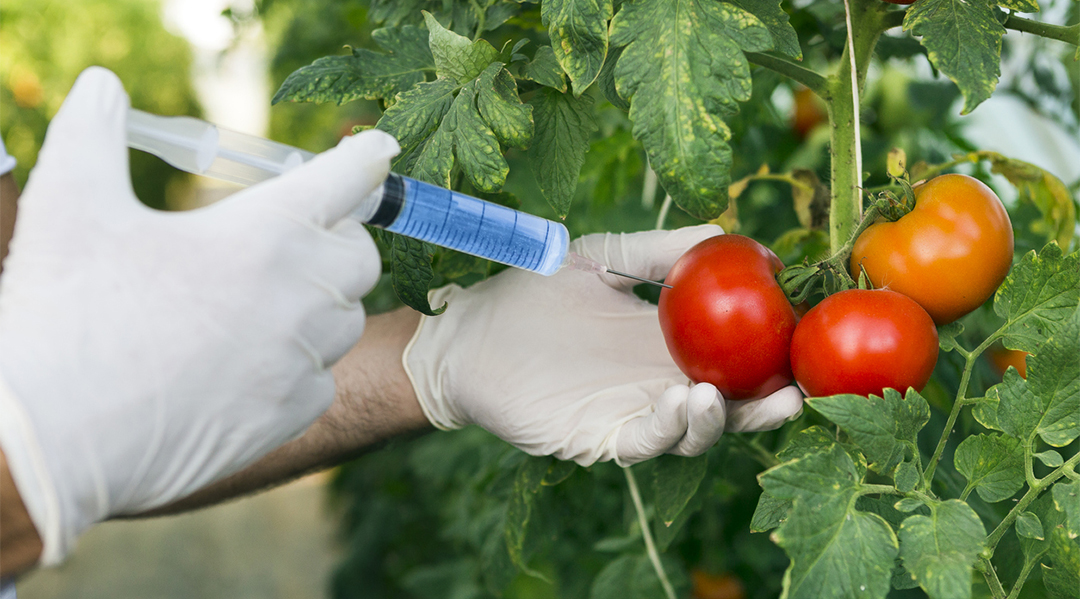Multiplex PCR Testing for Multiple GMO Events
In the realm of agriculture and forestry testing, ensuring the integrity and purity of genetically modified organisms (GMOs) is paramount. The Multiplex PCR Testing for Multiple GMO Events service plays a critical role in this context by offering precision and reliability in identifying specific genetic modifications within crops and other agricultural products.
The process involves amplifying multiple target sequences simultaneously using polymerase chain reaction (PCR). This technique allows for the detection of various events associated with genetically modified organisms, thereby providing comprehensive results. The service is particularly useful for quality managers, compliance officers, R&D engineers, and procurement professionals who need to verify the genetic makeup of their products.
Multiplex PCR testing ensures that agricultural products comply with international standards such as ISO, ASTM, EN, IEC, or other relevant guidelines. This method provides a robust framework for distinguishing between natural and engineered traits in crops, fostering trust among stakeholders involved in the food supply chain.
The technology behind multiplex PCR is sophisticated yet accessible when applied correctly. By leveraging this approach, laboratories can efficiently process multiple samples at once, reducing costs while increasing accuracy and throughput. This aligns perfectly with the demands of modern agricultural practices where efficiency and precision are key factors for success.
When selecting a laboratory to perform multiplex PCR testing, it's essential to choose one that specializes in agriculture and forestry testing. Such institutions possess the expertise necessary to interpret complex genetic data accurately and consistently across different samples. Their services should adhere strictly to established protocols outlined by recognized organizations like ISO or ASTM, ensuring compliance with regulatory requirements.
Compliance is not just about meeting legal standards; it also involves maintaining high ethical standards in research and development processes. By opting for multiplex PCR testing, agricultural enterprises can demonstrate their commitment to transparency and integrity, which ultimately builds consumer confidence in the quality of their products.
Scope and Methodology
Multiplex PCR testing is designed specifically for detecting multiple genetically modified organism (GMO) events within a single sample. This service leverages advanced polymerase chain reaction techniques to analyze various genetic markers simultaneously, providing comprehensive results in one test.
| Test Parameters | Sample Preparation | Instrumentation Used |
|---|---|---|
| Detection of specific GMO events | Collection and preparation of samples according to standard procedures | Sophisticated PCR machines capable of handling multiple reactions simultaneously |
| Analysis of genetic material | Extraction and purification of DNA from plant tissue or other relevant specimens | Real-time PCR systems for precise quantification during the amplification process |
| Verification of results | Quality control measures to ensure accuracy throughout each step of the procedure | Automated software solutions that facilitate data interpretation and reporting |
The methodology employed ensures consistency in sample handling, reagent usage, and temperature cycling parameters. These controlled conditions are crucial for accurate detection rates and reliable outcome interpretation.
Industry Applications
Multiplex PCR testing finds extensive application across various sectors within the agricultural industry. It serves as an indispensable tool for seed developers seeking to introduce novel traits into their products, ensuring that these modifications meet regulatory requirements before commercialization.
- Seed companies can use multiplex PCR testing during R&D phases to identify potential beneficial genetic combinations early on in development cycles
- Agricultural biotechnology firms rely heavily on this service when conducting field trials or large-scale production runs, helping them stay compliant with international standards
- Certification bodies leverage these tests to verify claims made about GMO content in food products sold domestically and internationally
- Regulatory agencies employ multiplex PCR testing as part of routine inspections aimed at preventing unauthorized modifications from entering markets
Besides its role in ensuring compliance, this service contributes significantly towards maintaining public trust by providing transparent information regarding the genetic composition of agricultural products. This transparency fosters confidence among consumers who value knowledge about what they consume.
Environmental and Sustainability Contributions
- Multiplex PCR testing helps minimize waste generation associated with conventional single-target PCR methods through efficient use of reagents and resources.
- The service supports sustainable agricultural practices by aiding in the development of more resilient crop varieties that require less water, fertilizer, and pesticides.
- It enables better management of genetically modified organisms, reducing risks posed to biodiversity and ecosystem health.
- This testing contributes positively to climate change mitigation efforts by supporting informed decision-making processes related to plant breeding programs aimed at increasing carbon sequestration capabilities in forests and agricultural lands.
The integration of multiplex PCR into environmental management strategies enhances overall sustainability metrics for organizations operating within the agriculture and forestry sectors. By leveraging this technology, stakeholders can contribute meaningfully towards global goals set forth by international bodies concerned with climate change and biodiversity protection.





